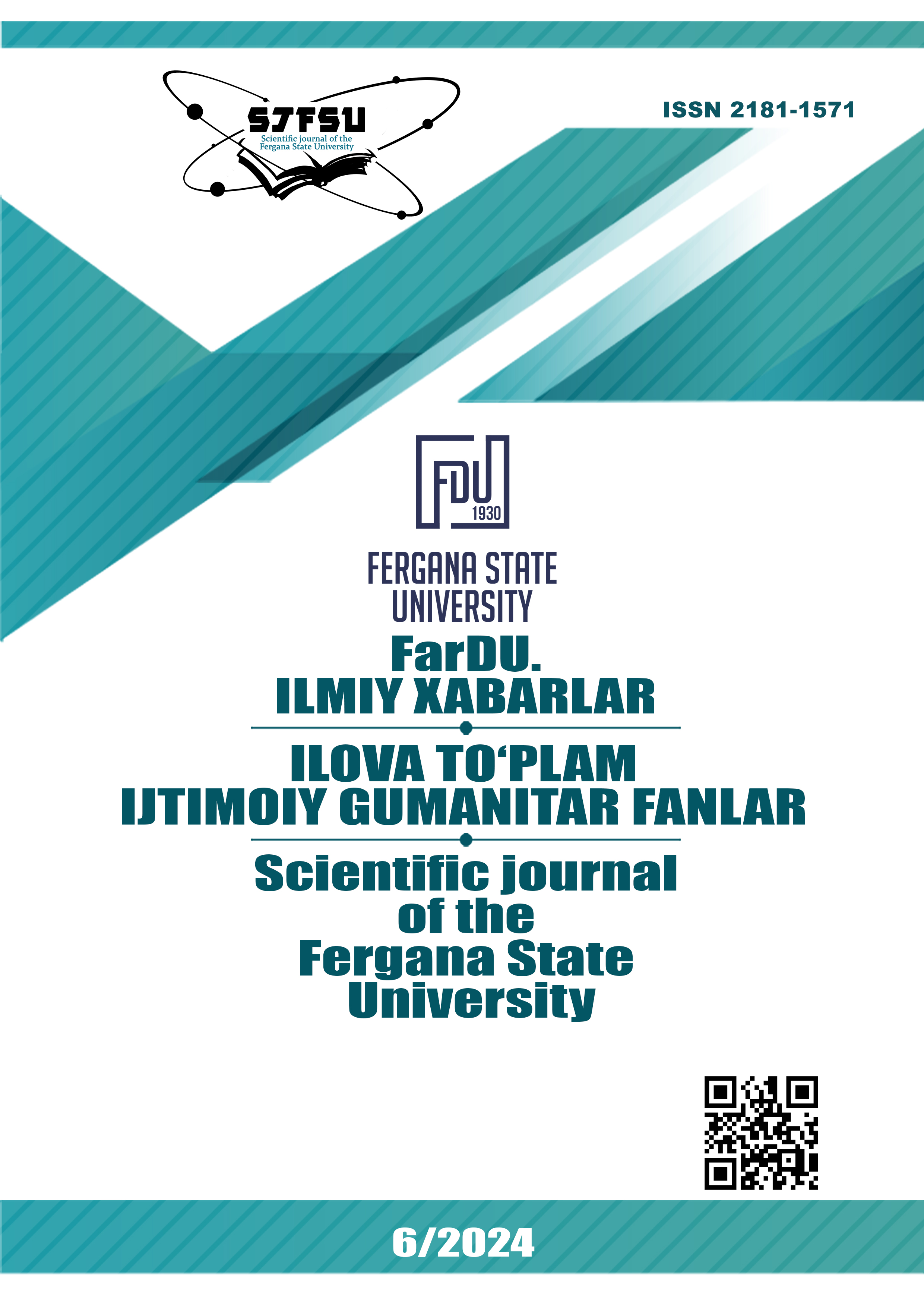GERMAN AND UZBEK PHRASEOLOGISMS IN THE CONTEXT OF NATIONAL WORLDVIEW: BASED ON CULTURE AND LINGUISTICS
Keywords:
phraseology, worldview, linguistics, national characteristics, cultural integration, national identity, language and culture.Abstract
The article analyzes phraseological expressions in the German and Uzbek languages to explore the worldview, cultural peculiarities, and linguistic foundations from a cultural studies perspective. It examines how the phraseological expressions in both languages reflect the worldviews, values, and customs of the people. Phraseologisms are linguistic representations of a nation’s historical experiences, religious, philosophical, and social views. The article discusses the meaning and cultural significance of these phraseological expressions, focusing on the main characteristics of German and Uzbek phraseologies, the layers of meaning they express, and the role of language in the social and cultural context. It highlights the changes and differences in cultural identity, historical experience, and national consciousness. The article also explores the connection between the cultures of Germany and Uzbekistan, the worldview of their peoples, and the relationship between language and phraseology. Moreover, it looks at the role of phraseology in linguistics, its significance in preserving national spirit, and its function in expressing the values of the people.
References
Aliyeva, D. (2010). O‘zbek xalq frazalogizmlarining madaniy ahamiyati. Tashkent: O‘zbekiston Respublikasi Fanlar Akademiyasi.
Baranov, V. (2009). Lingvokulturologiya va frazalogizm. Moskva: Yazyki slavyanskikh kul'tur.
Biber, D., Conrad, S., & Reppen, R. (1998). Corpus linguistics: Investigating language structure and use. Cambridge University Press.
Gritsenko, A. (2015). Kultura i yazyk: Osnovy lingvokulturologii. Sankt-Peterburg: Aleteya.
Kraus, A. (2002). Kultur und Sprache: Eine Einführung in die Sprachwissenschaft. Berlin: De Gruyter.
Kuchma, A. & Rakhmanov, A. (2020). Kontrastivnye issledovaniya frazeologizmov v nemetskom i uzbekskom yazykakh. Tashkent: Uzbekiston Respublikasi Oliy va o‘rta maxsus ta’lim vazirligi.
Muminov, F. (2012). O‘zbek tilidagi frazalogizmlar va ularning madaniy xususiyatlari. Tashkent: Nizomiy nomidagi TDPU.
Propp, V. (2003). Morfologiya fol'klora. Moskva: Nauka.
Saussure, F. de (1983). Kurs umumnoj lingvistiki. Moskva: Progress.
Shirinov, K. & Yuldashev, M. (2014). O‘zbek tilidagi frazalogizmlar va ular orqali ifodalangan milliy dunyoqarash. Journal of Linguistics and Cultural Studies, 3(1), 45-58.
Wierzbicka, A. (1997). Understanding cultures through their key words: English, Russian, Polish, German, and Japanese. Oxford University Press.
Zinchenko, V. (2005). Jazyki i kultura. Sankt-Peterburg: Aleteya.
Downloads
Published
Issue
Section
License
Copyright (c) 2025 Scientific journal of the Fergana State University

This work is licensed under a Creative Commons Attribution-NonCommercial-NoDerivatives 4.0 International License.
How to Cite
Most read articles by the same author(s)
- , TRANSLATION OF NATIONAL-CULTURAL CHRACTERISTICS IN TRANSLATION DICTIONARIES , Scientific journal of the Fergana State University: No. 3 (2024): Scientific journal of the Fergana State University. Application set (Social humanities sciences)
- , NATIONAL MENTALITY AND IDIOMS: THE CULTURAL INFLUENCE OF GERMAN AND UZBEK PHRASEOLOGISMS , Scientific journal of the Fergana State University: No. 6 (2024): Scientific journal of the Fergana State University ADDITIONAL COLLECTION (Social humanities sciences)

